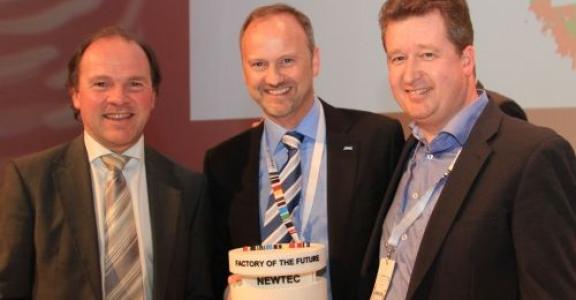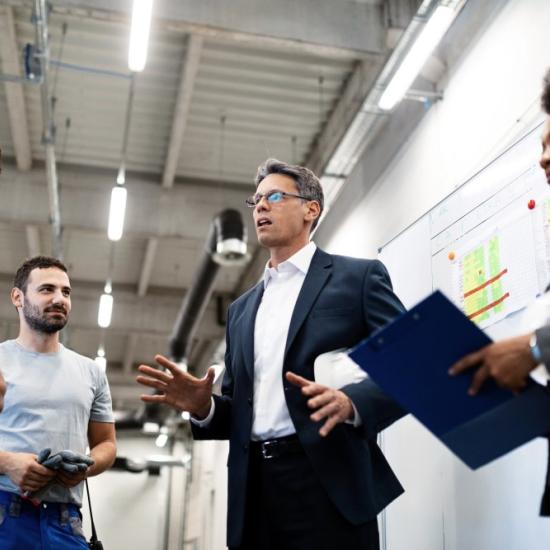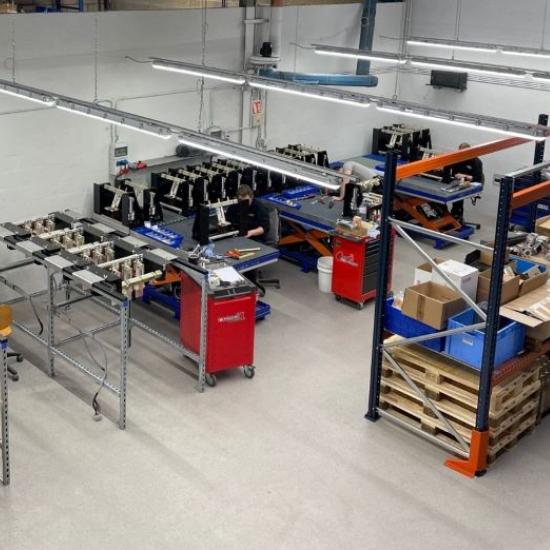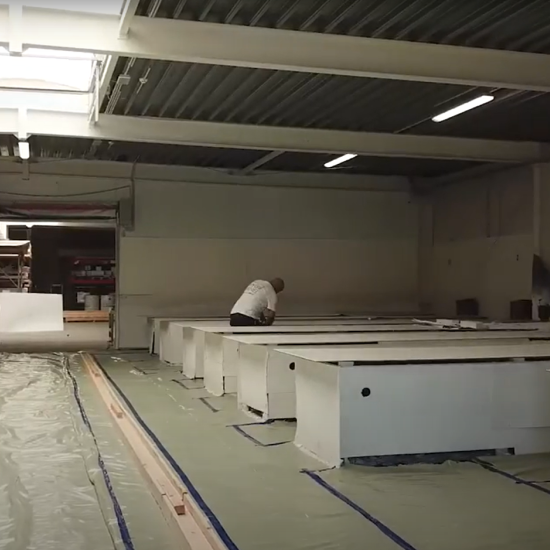Continental, Dentsply Implants, Newtec and Provan are the first factories of the future in this country. For a number of years now these technology companies have been investing in state-of-the-art production technology, digitisation, social innovation and ecology and are now among the top manufacturers in this area. There is no doubt that they deserved to be presented with the Factory of the Future award on 3 February this year. One by one, we now put these remarkable companies under the spotlight.
Four companies obtained the status of 'Factory of the Future' in the assessment process. Newtec being one of them is an international high-tech specialist in the design, development and production of materials and technology for satellite communications. The company is also involved in the development of the new standards for transmission via satellite. The standard developed last year was a result of a combination of their own technology with that of the technology of one of their US competitors. Thanks to Newtec's technology, more than 2 billion people can watch TV.
Every piece of equipment supplied by Newtec is unique. Software, hardware and functionality are all created to match the customer's requirements. The production facility in Erpe-Mere in Belgium is fully customised for this high mix/low volume market. The company strives for continuous innovation for both products and its processes. Investments in the past were made for intensive digitalisation of the production facilities.
Newtec was a fervent participant in the Made Different project and therefore ended up with the Factory of the Future title. The most important transformations included rolling out the digital factory, the introduction of the end-to-end engineering and embracing the human-centre production processes.
Digitisation
Intensive digitisation introduced a number of important advantages. It meant that the duration of the production processes could be shortened substantially, thereby increasing customer satisfaction. The second advantage concerned the quality of the production process and the third advantage was the higher levels of commitment demonstrated by the employees.
The principle results
Levels of efficiency were sharply increased thanks to digitisation. This emerged from the results of the 'First Pass Yield Test': at least 95% of the products were fully functional at the end of the production process. This was an extremely good result if you bear in mind the complexity and volumes that Newtec has to deal with. It was achieved thanks to the culture of continuous innovation and where improvement over the previous production is expected. A substantial advantage in this respect is that both the quality as well as the costs have been positively influenced.
Another significant result concerns the successful introduction of the digital factory concept on three levels, whereby employees, processes, suppliers and customers are drawn closer together in the value chain. Finally, the cross-training of employees in all departments has given Newtec increased flexibility making it possible to optimise the entire operational flow.
Network of the future
Further growth is anticipated over the coming years mainly because satellite communications are becoming increasingly important, but also because further innovations are going to offer even more opportunities for data transmission. The company would like to grow and become a key player in a network of partners and suppliers. Being a specialist company, such ecosystems are essential for further growth. It is also important to add in other technologies, including the additional capacities contributed by the other partners with respect to both own products and also the production process.
Within the scope of Made Different, both Sirris and Agoria are currently providing support for another 140 companies in their transformation towards becoming Factories of the Future. These companies are currently undergoing one or more actual transformations. The companies operate in a wide range of sectors: technology, foodstuffs, textiles, paper, pharmaceuticals, transport, chemicals, leather, furniture, medical, construction, etc. In total they encompass both SMEs (66%) and large companies (34%) spread over the Flemish provinces. Sirris and Agoria have estimated that by 2018 approximately 50 companies will have acquired 'Factory of the Future' status. Over the long-term they are looking at around 500 companies.




